Guest post from Matrescence NZ
Simply put, Matrescence is the transition to motherhood and all that encompasses. The emotional, spiritual, biological and social experiences that you undergo once your baby is born.
It’s also been referred to as the ‘Birth of a Mother’. Just like becoming an adult through teenage years, it is a transitional period, with being pregnant exactly like going through puberty all over again; hormones, hair and skin all get out of control, and you a new growing body to get used to.
The difference is that everyone expects teenagers to be awkward, but during matrescence, people expect you to be blossoming and happy while secretly losing control of the way you look, think and feel. Motherhood can be both the very best, and the very worst, time in one’s life.
Talking about Matrescence creates the language we need to be able to talk about our challenges, to normalise the stresses and issues created along the way, and create awareness for others to normalise the experience for every mother.
What is Matrescence?
The journey of motherhood provides a unique opportunity for growth, insight and transformation. An understanding of matrescence helps to normalise challenging thoughts/situations and validates confusing emotions. An understanding of matrescence helps mothers to embrace motherhood and all the many ups and downs, resulting in less resistance to the changes that are taking place, less fighting against what they can’t control and more acceptance of this journey as an opportunity for a realignment of values and purpose.
Matrescence is a developmental passage where a woman transitions through pre-conception, pregnancy and birth, surrogacy or adoption, to the postnatal period and beyond. The exact length of matrescence is individual, recurs with each child, and may arguably last a lifetime! The scope of the changes encompass multiple domains –bio-psycho-social-political-
spiritual– and can be likened to the developmental push of adolescence. – Aurélie Athan, Ph.D.
We love this definition for these three reasons…
1. It recognises that giving birth is not the marker of motherhood;
It is so imperative to recognise and validate those that conceive but for a number or reasons don’t give birth, OR those that don’t conceive or don’t give birth but then still become parents. The matrescence and motherhood journey is more complex than just starting from day one when baby is born.
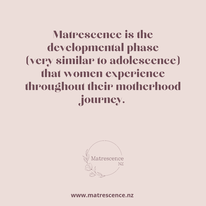
2. Matrescence is experienced individually – no one size fits all;
The motions of matrescence can begin in childhood when we learn what we think it means to be a mother, when we mother our siblings or pets or when we start planning or thinking about having children, and we’re still experiencing matrescence even as we become a Grandmother! Matrescence is not a fixed period in time, (compared to adolescence) the changes are ongoing as you move through each phase or season of motherhood.
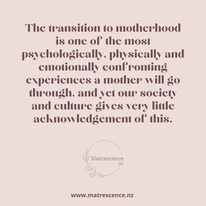
3. Is felt in all aspects of our lives, whether we are aware of it or not;
This is what makes matrescence so life changing – because it impacts every aspect of your life; bio-psycho-social-political-
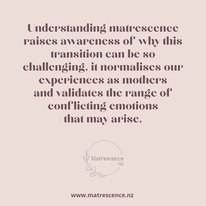
Download this free resource from Matrescence NZ, designed to support families to prepare holistically for the postpartum period – like a birth plan but focused on parental well-being postpartum!
Completely free to download or available at a small print/postage. Matrescence NZ are passionate about making this resource accessible to all expecting parents.
The plan was designed and had the involvement of a psychologist, teacher, midwife, postpartum doula, sleep consultant, mothers and mums to be. It has been designed to enhance the protective factors for maternal well-being, such as strengthening support networks, relationships and communication, as well as including topics, activities and information to help mothers prepare such as nutrition, sleep and mental health.
Watch: for further information on Matrescence and the Fourth Trimester, watch our PADA Popup Chat #27 on YouTube here.
Read more – Sarah Horne is really passionate about breaking down the stigma that The Fourth Trimester is how it’s portrayed on Instagram and other social media. It’s something that requires planning, organisation and thought before conception & antenatally.

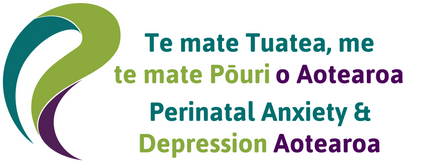

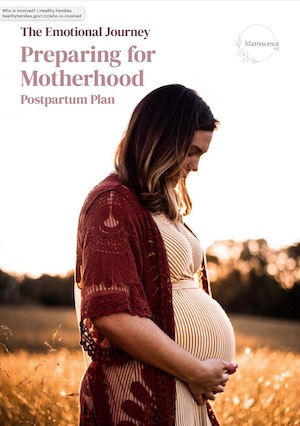
Recent Comments